The Best MIDI Tools for your Studio and Live Rig
MIDI Interfaces, Routers, and Problem Solvers
If you’re running a large MIDI setup, you can’t do without them: Maximize the potential of your rig with these indispensable MIDI tools and problem solvers!
Best MIDI Tools
MIDI Interfaces: When USB is not an Option
When USB was still in its infancy and every major studio was mighty proud of its walls full of rack-mounted sound modules and samplers, they were just as common as audio interfaces are today: Large MIDI interfaces with at least eight individual inputs and outputs. Many larger studios relied on several of these MIDI tools from brands such as Opcode, MOTU, or Emagic, some of which are long gone.
MIDI interfaces serve to connect all your MIDI devices to the computer and ensure flawless communication in both directions. Connecting several devices in series via their MIDI Thru ports often isn’t an option, as it can cause all sorts of annoying timing problems. Each device takes a few milliseconds to forward the incoming data to the next instrument, which can quickly add up. To ensure that everything runs in sync, it’s best to have a dedicated MIDI input and output for each device.
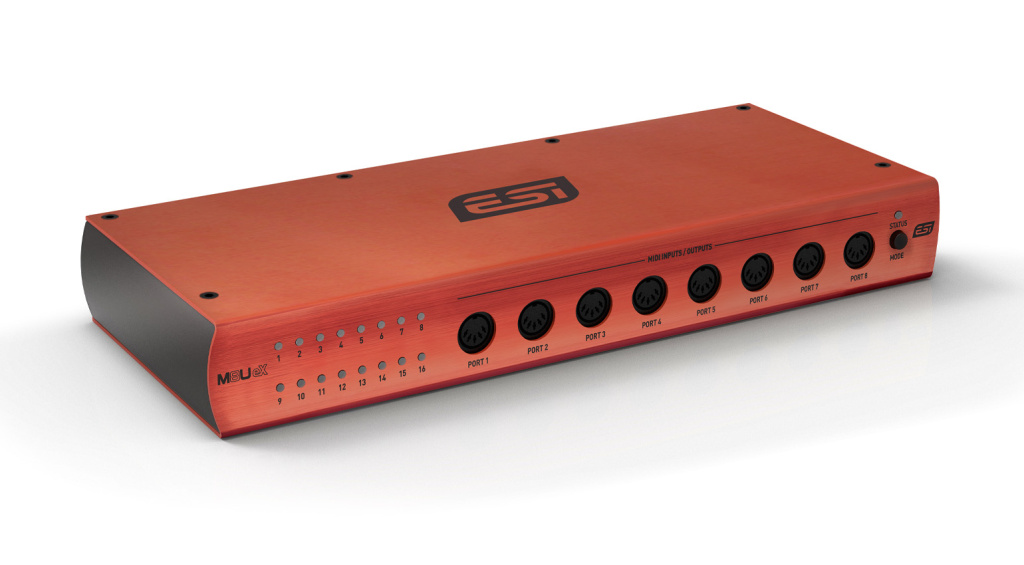
These days, most hardware synths and MIDI controllers have USB ports for connecting them directly to the computer. Many modern audio interfaces also offer built-in MIDI jacks, which are often sufficient if you don’t have more than a handful of devices. That’s why dedicated MIDI interfaces, especially those with eight or more inputs and outputs, are becoming increasingly rare. However, if you have a large setup and want to ensure flawless communication, they’re absolutely still relevant today. USB MIDI is unfortunately far from problem-free, which is why many “MIDI power users” still prefer the classic DIN sockets. If you’ve ever tried to connect ten or more MIDI devices via a USB hub, you probably know what I’m talking about.
MIDI interfaces are available in various sizes, from simple adapter cables with one input and output each to large rack-mounted interfaces with 8×8 or even 16×16 ports. Some offer additional MIDI tools such as a routing matrix, filters, merge and thru functions, or a USB host port for connecting additional devices via USB. Some can even function as stand-alone MIDI routers without a computer.
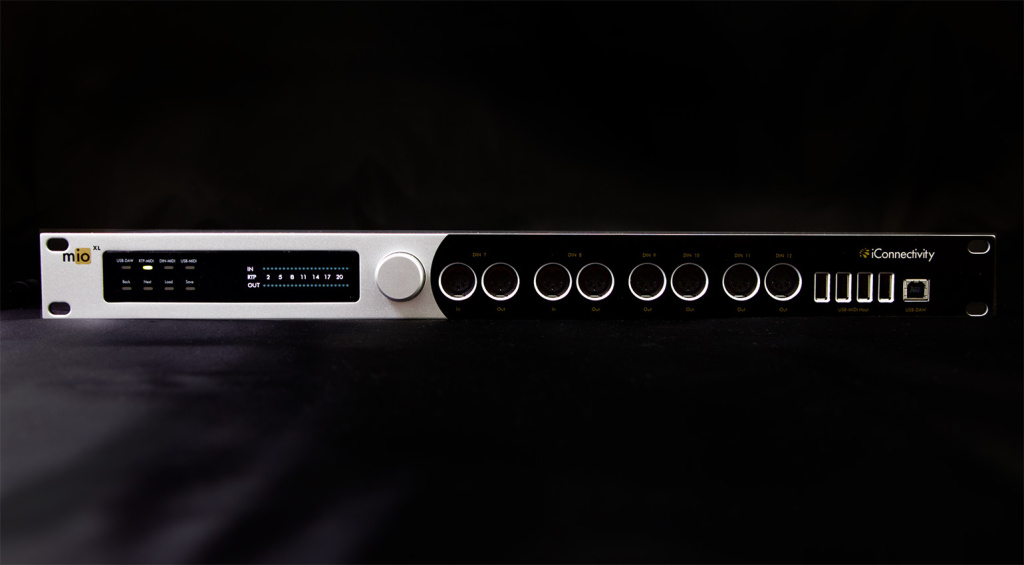
If you only need to connect one MIDI device with DIN sockets to the USB port of your computer, a simple 1×1 MIDI interface in cable form is the quickest and most affordable solution. These inexpensive MIDI tools look like simple adapter cables with a USB plug at one end and two DIN plugs at the other. However, they contain electronics for converting the USB data stream into MIDI data and vice versa. Such interfaces are available from manufacturers such as iConnectivity, ESI, CME, and Roland, among others.
While most are class-compliant and should work without issues on Windows and Mac computers and mobile devices, some cheaper or older models can be a bit tricky, especially when it comes to more specialized MIDI data such as SysEx. It’s best to do some research to ensure that the MIDI interface is compatible with your OS and the data you need to transmit.
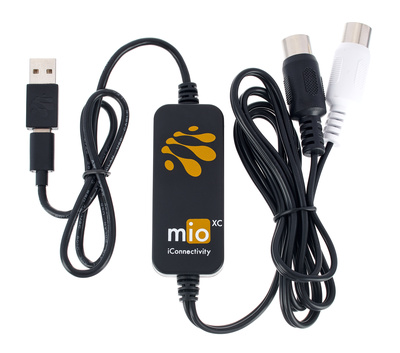

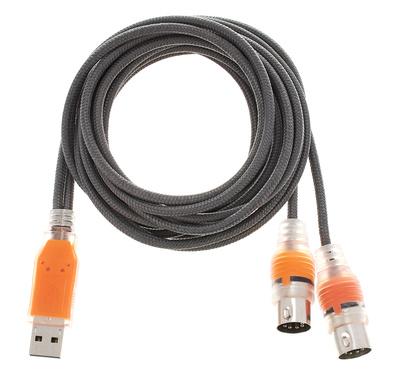

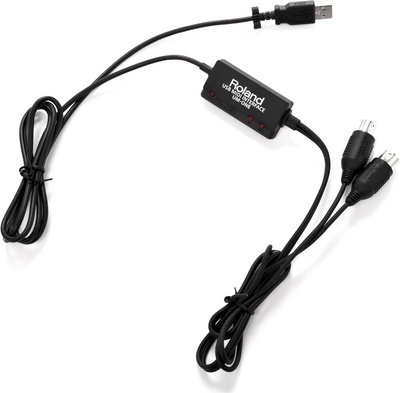

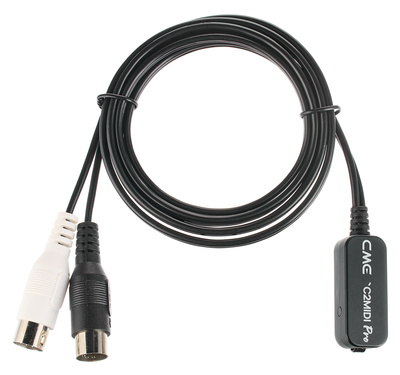

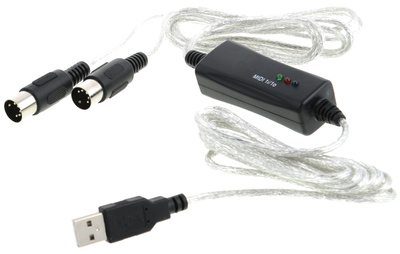
If you need more inputs and outputs, a MIDI interface* in desktop or rack format is the best option. These are available in various input and output configurations from 2×2 to 16×16. However, the number of ports isn’t the only thing to consider. Many interfaces offer additional features that can make them the perfect choice for your needs.
The interfaces from ESI, for example, are extremely flexible, as each individual port can operate as an input or output, which is even detected automatically. They also work as a standalone thru box or merger. And if you’re looking for a MIDI interface that also functions as a highly configurable standalone routing matrix for your DAWless setup, take a look at the versatile interfaces from iConnectivity.
MIDI Interfaces with flexibly configurable Inputs and Outputs

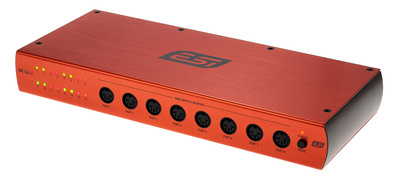

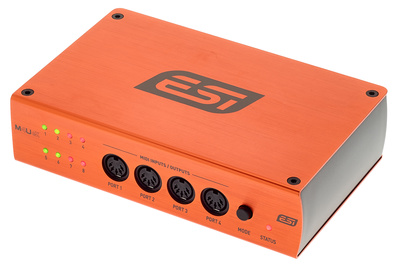

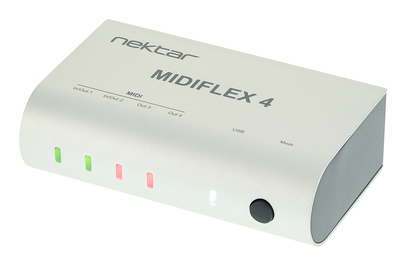
MIDI Interfaces with 2 Inputs and 2 Outputs

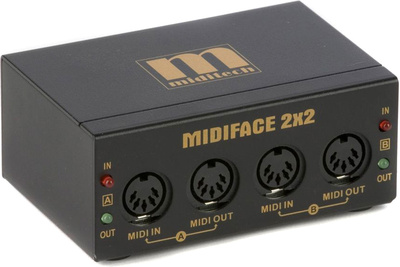

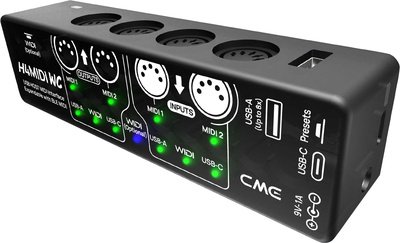

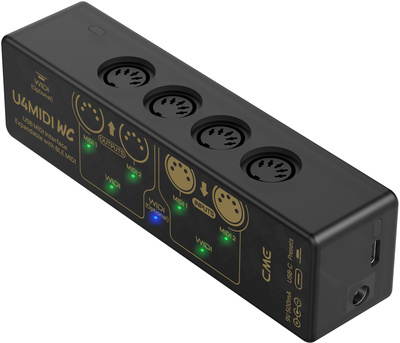
MIDI Interface with 3 Inputs and 3 Outputs

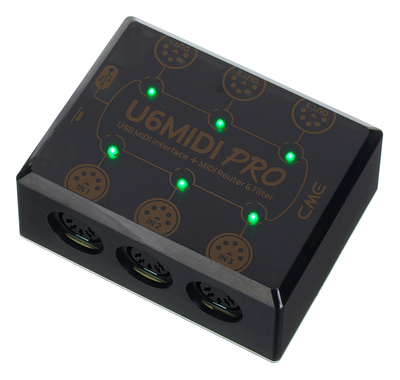
MIDI Interfaces with 4 Inputs and 4 Outputs
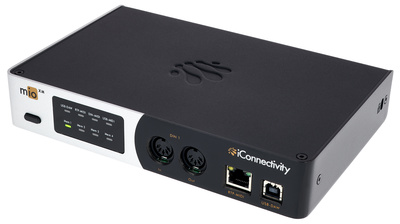

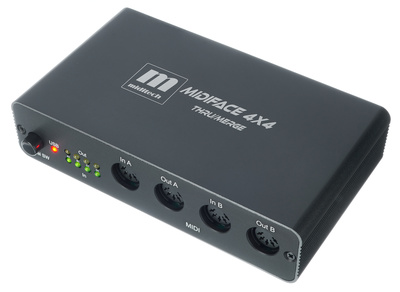

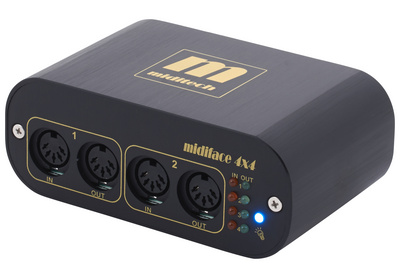
MIDI Interfaces with 8 Inputs and 8 Outputs
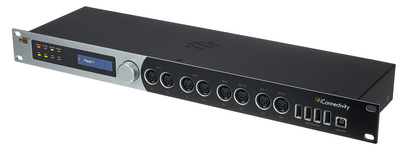

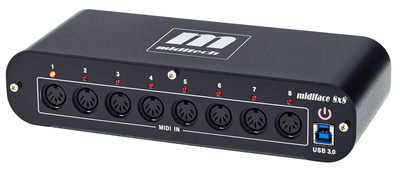
MIDI Interface with 16 Inputs and 16 Outputs

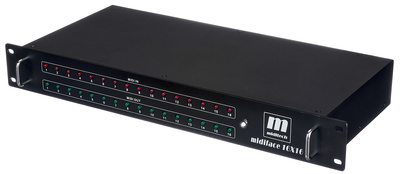
MIDI Routers: Unlimited Flexibility
Want to be able to control any MIDI device in your setup from any other, without having to go through your DAW software? In this case, a MIDI router or MIDI patchbay is the way to go. Let’s say, for example, you’re running a DAWless setup consisting of multiple synths, controllers, and sequencers. The best way to hook everything up so that you can freely map your sequencers and controllers to your synths and switch between different configurations is through a standalone MIDI router.
These MIDI tools allow you to configure the connections between all your MIDI devices and save them as a preset. Most also offer functions for filtering, merging, and transforming your MIDI data along the way. Depending on the model, the assignments are made on the device itself or in a software application. Then you only need to call up the desired preset, and the MIDI messages from your sequencers and controllers will arrive exactly where you want them to go. While MIDI routers are mainly designed as standalone hubs, many can also act as a MIDI interface for your computer, thus performing both functions in one device.
Conductive Labs MRCC: The Ultimate Hub for DAWless Setups
While it isn’t cheap, the Conductive Labs MRCC MIDI Router Control Center is one of the most luxurious and versatile MIDI tools you can get. In addition to five inputs and ten outputs in DIN format, it offers four USB host ports for keyboards, sequencers, and controllers. In addition, one TRS input and two TRS outputs are available. Conductive Labs also offers the optional Remote 7 extension, which adds five more DIN ports and two TRS sockets and is connected via a network cable, so you can easily place it in a convenient location close to your synths.

Mapping MIDI inputs to outputs is as easy as pushing the respective buttons. Functions such as split, layer, merge, and filter are also available. Moreover, the MRCC also contains no less than six arpeggiators, as well as a clock output for synchronizing analogue hardware. It stores up to 127 presets and also functions as a MIDI interface. You can get it from Thomann*.

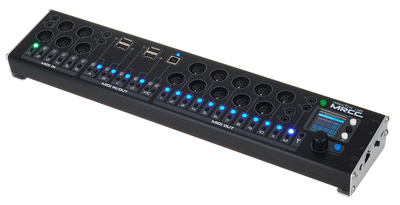

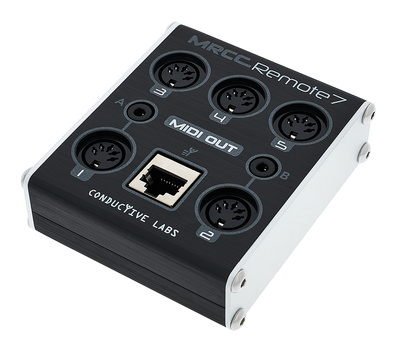
SOMA Metaconformer: Compact MIDI Problem Solver
The SOMA Metaconformer is a MIDI router and processor with two inputs and four outputs, all in TRS format. This makes it a perfect solution for setups consisting of small desktop synths and Eurorack modules.
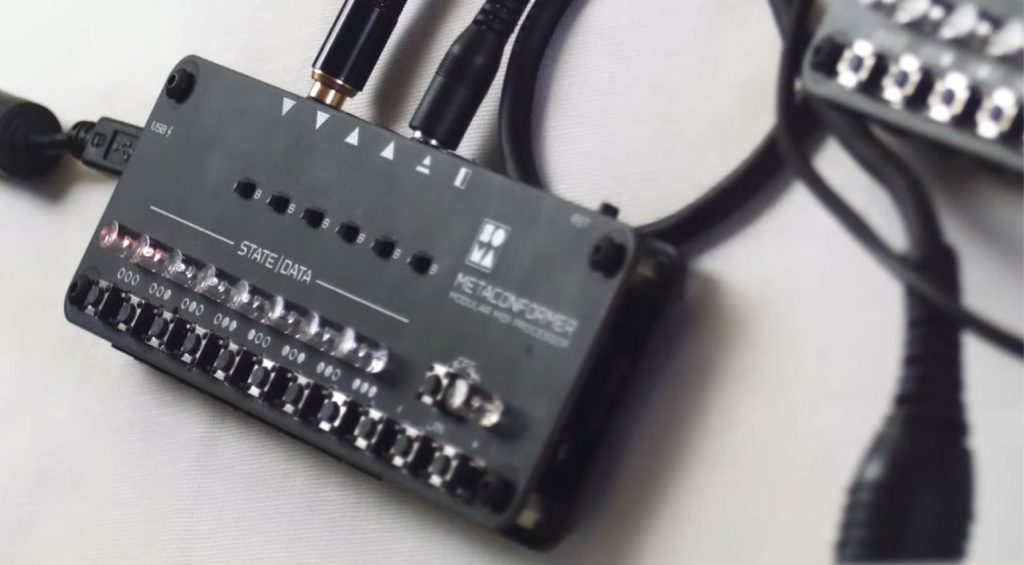
The Metaconformer can combine MIDI data from multiple sources and distribute it to the outputs according to configurable criteria. You can also create MIDI keyboard zones and map them to different outputs. Most interestingly, the Metaconformer also offers a Combiner mode for combining several monophonic synths into one polyphonic instrument. In Translator mode, MIDI notes are converted to CC messages, allowing you to “play” controllers. And with the optional SimplexFM firmware, it even becomes a digital FM synthesizer with four tracks.
The SOMA Metaconformer is available from Thomann*.

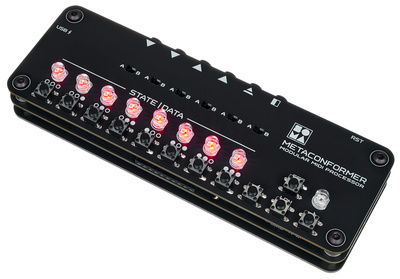
Lab4Music SiparioX: Programmable MIDI Router
The Lab4Music SiparioX is a programmable MIDI router designed primarily for live players. In addition to five DIN inputs and five DIN outputs, it offers a USB-B port for connecting to a computer and a USB host port that you can use to connect up to four USB MIDI devices.
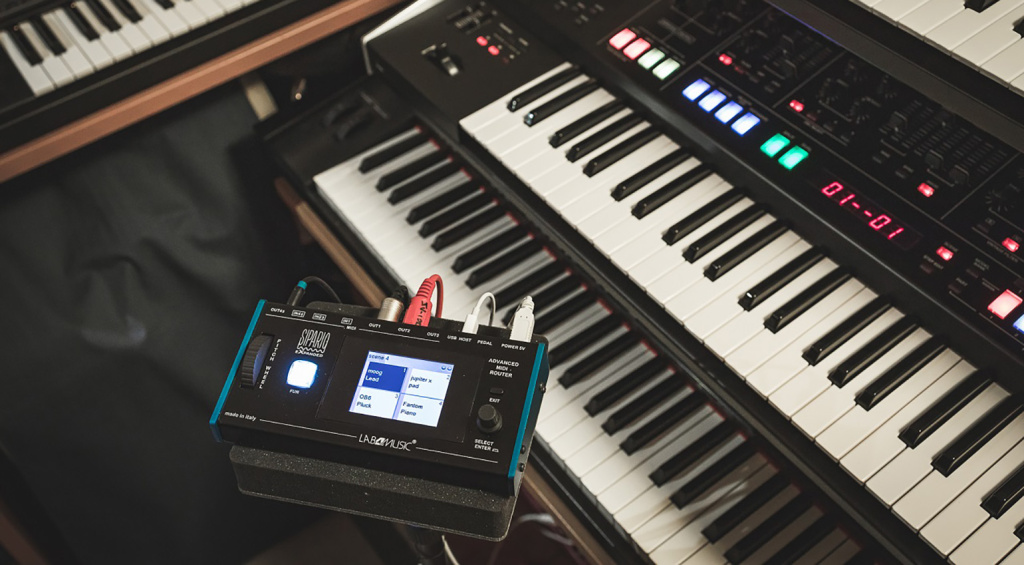
SiparioX allows you to create and store scenes consisting of up to 20 programmable zones, i.e. assignments of controllers and/or keyboard zones to a synth. Split and layer configurations are of course also possible. In addition, SiparioX offers extensive CC filtering and remapping functionality, configurable velocity curves, and even a pitch wheel. There’s a built-in sequencer with 32 steps and three tracks, but you can also control external sequencers via start, stop, and continue commands.
SiparioX is available from Thomann*.

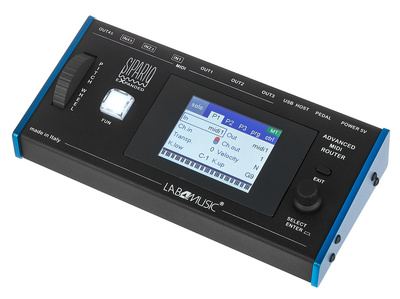
CME H4MIDI WC and U4MIDI WC: Compact MIDI Interfaces and Routers
The CME H4MIDI WC and U4MIDI WC MIDI interfaces can also be used without a computer as standalone MIDI routers. The Hx MIDI Tools software for Windows, macOS, Android, and iOS allows you to create and store up to four presets, which can then be selected directly on the hardware via a push button. Their compact size makes them a great choice if you need a MIDI router for your pedalboard.
Both offer two DIN inputs and two DIN outputs. The H4MIDI WC has an additional USB host port that you can use to connect up to eight USB MIDI devices. Wireless MIDI is available as an option for both interfaces.
The CME H4MIDI WC and U4MIDI WC are available from Thomann*.




MIDI Mergers and Thru Boxes: Indispensable MIDI Tools
If you want to control several devices from a single controller or sequencer, a MIDI thru box is usually a better option than connecting everything in series, especially if precise timing is essential. It distributes an incoming MIDI data stream (from the controller or sequencer) to several outputs. This ensures that your MIDI data reaches all of your devices at the same time and everything runs perfectly in sync.
Thru boxes are available from Thomann* in different versions with two, four, five, or more outputs (up to 25!).

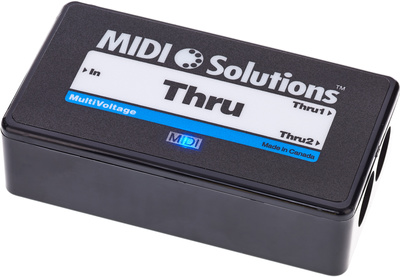

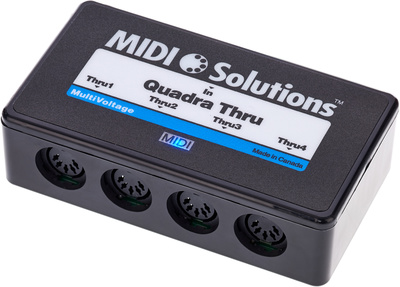

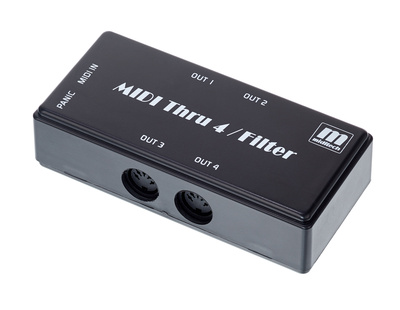

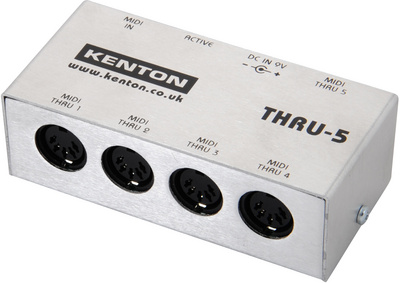

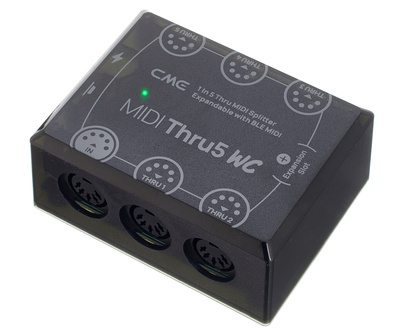

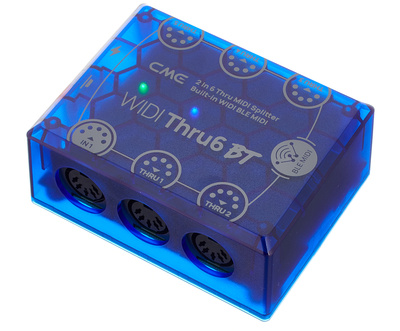

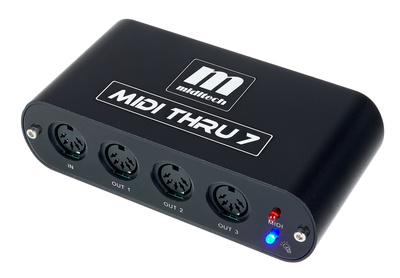

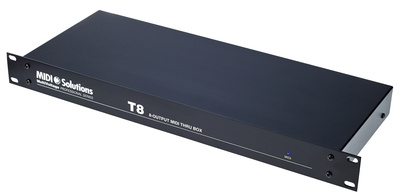

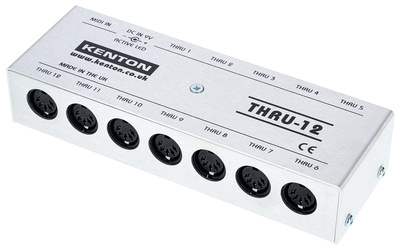

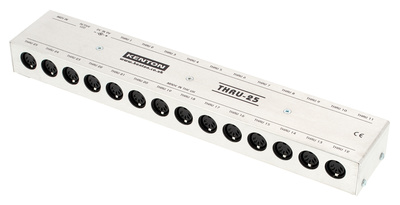
A MIDI Merger does exactly the opposite: it merges MIDI data from several sources into one data stream. This is useful, for example, if you want to use multiple controllers and/or sequencers simultaneously to control the same device. These MIDI tools also come in various sizes*.

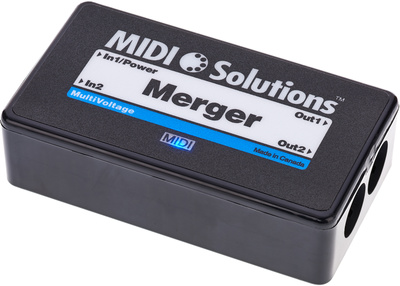

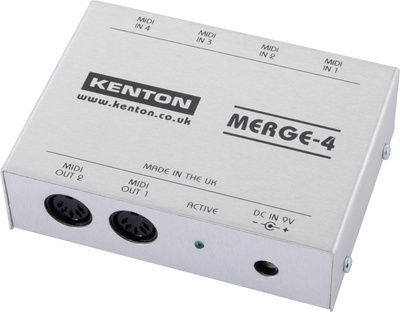

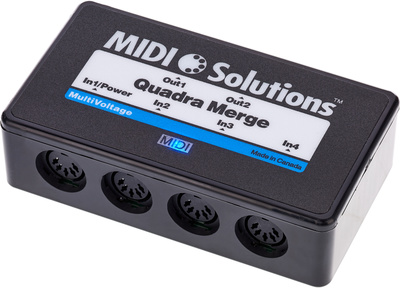

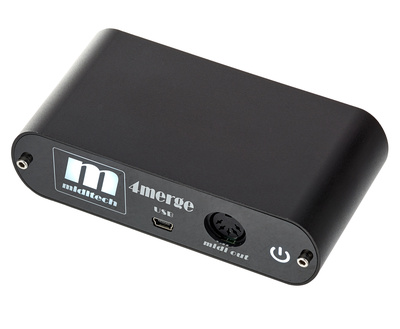

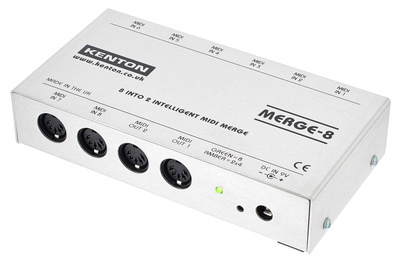

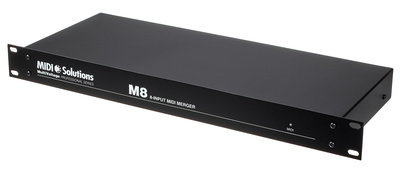
Need to solve a specific MIDI problem? There’s a good chance that MIDI Solutions makes just the tool you’re looking for. Their range of MIDI tools, which has been around for what feels like an eternity, includes everything from event processors and footswitch converters to MIDI signal boosters and even MIDI-controlled relays. There are no limits to creativity here!
Discover the MIDI Solutions range at Thomann*!
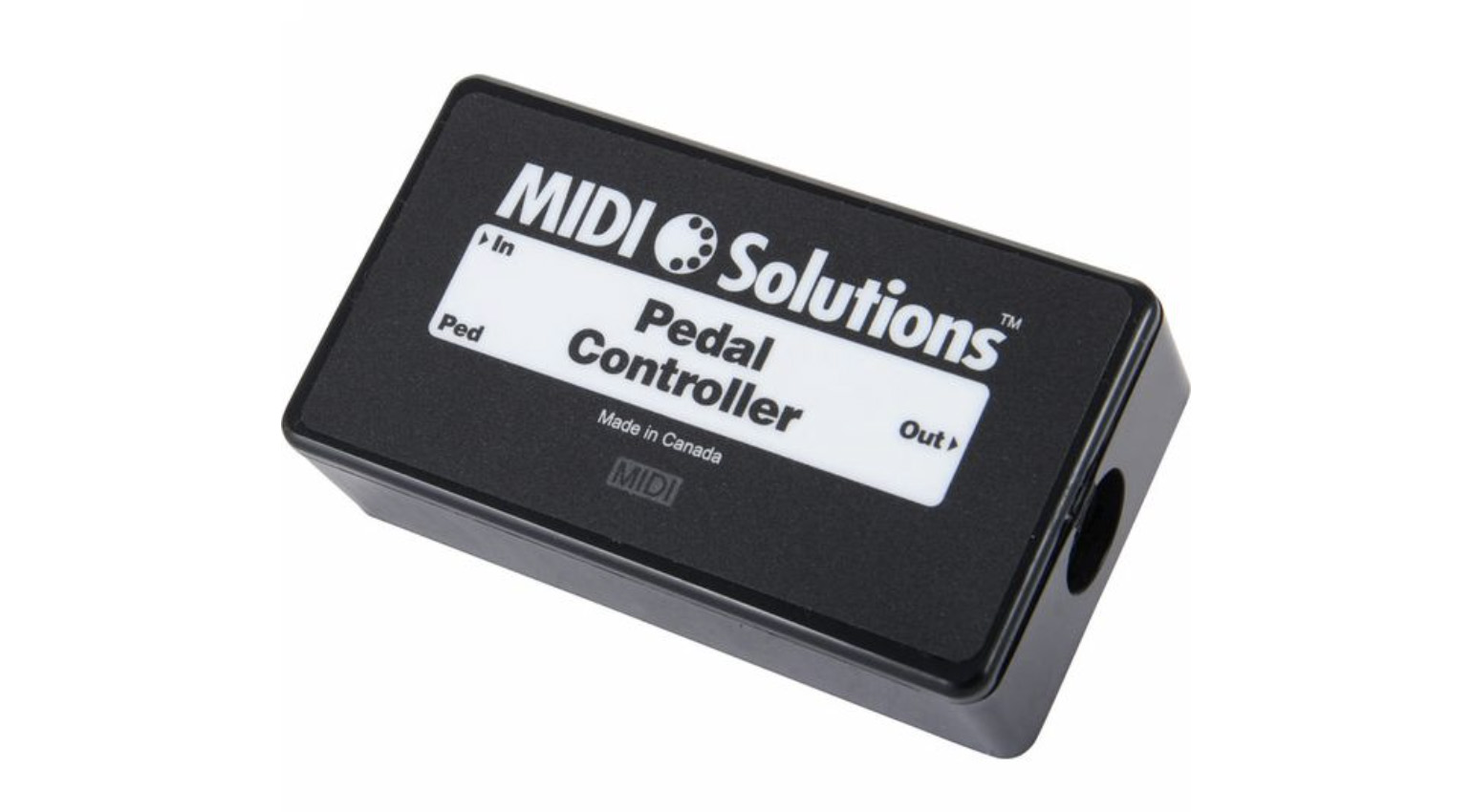
*This post about MIDI tools contains affiliate links and/or widgets. When you buy a product via our affiliate partner, we receive a small commission that helps support what we do. Don’t worry, you pay the same price. Thanks for your support!
6 responses to “The Best MIDI Tools for your Studio and Live Rig”

You are currently viewing a placeholder content from Facebook. To access the actual content, click the button below. Please note that doing so will share data with third-party providers.
More InformationYou are currently viewing a placeholder content from Instagram. To access the actual content, click the button below. Please note that doing so will share data with third-party providers.
More InformationYou are currently viewing a placeholder content from X. To access the actual content, click the button below. Please note that doing so will share data with third-party providers.
More Information
 4,6 / 5,0 |
4,6 / 5,0 | 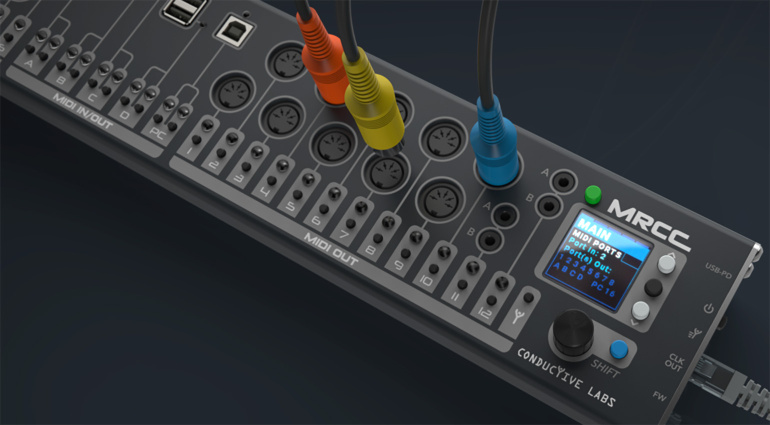


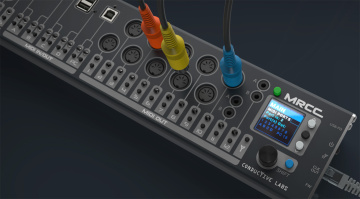

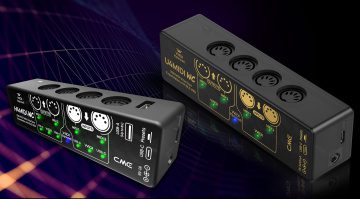
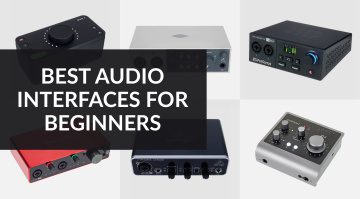
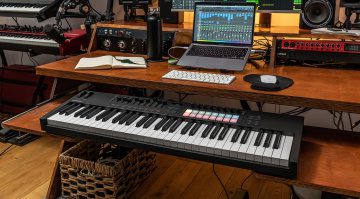
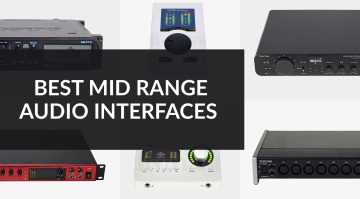
Great article, thank you!
Thanks for the heads up! About time somebody that knows, shed light on this, much needed!
Blokas midihub is very useful if you need to do more complicated routing or filtering.
There is also a company called ESI doing complex MIDI solutions, they should be in this article too
(I don’t work for them)
One of their products is the first picture shown.
Last time I checked the guys from conductive labs have went radio silent on their forums where ppl are supposed to log bugs in the software, and there is still seemingly still software bugs with the MRCC.